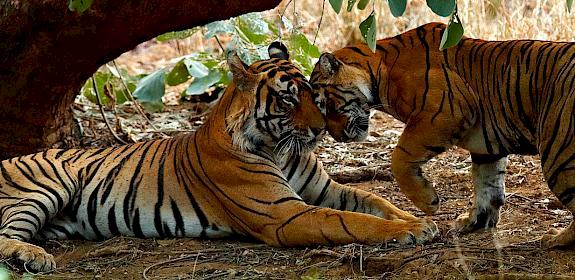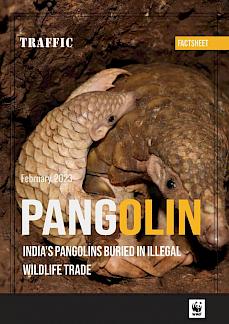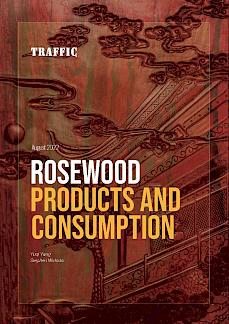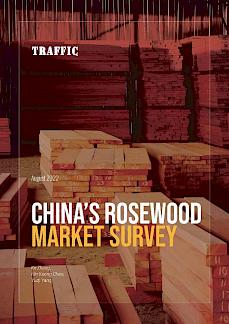
Ground Pangolin Smutsia temminckii, one of the four African species poached to meet consumer demand © Keith Connelly
i
responsible consumption of endangered species
One of the major drivers of the trade in pangolins and rosewoods is the demand for their products in China. Both pangolins and rosewoods (Dalbergia spp.) are listed in CITES, which strictly prohibits, in the case of pangolins, and limits, for rosewood, their international trade.
These restrictions are largely reflected in China's domestic laws, although in both cases the prohibitions are confounded by conflicting industry policies that promote the use of pangolin and rosewood products. This has caused confusion among consumers about the legality and sustainability of their consumption, reflected in the devastating rates of poaching experienced by many pangolin populations as well as harvesting rates with the potential to threaten the continued survival of rosewood species in the wild.
1,000,000
pangolins are believed to have been poached in the last decade




Education and awareness are essential to support efforts to combat devastating rates of over-consumption of threatened wildlife products
Xu Ling, Acting head of TRAFFIC's China Office
our project objective
To support the action of China to reduce demand for endangered species products linked to Chinese consumers, particularly pangolins, and promote responsible consumption of endangered species, especially rosewood species, thereby contributing to reducing trafficking and implementation of the EU Action Plan against Wildlife Trafficking.
A captured pangolin is displayed by poachers in Cameroon © A. Walmsley / TRAFFIC
i
specific objectives and activities
objective 1
"To support China-EU efforts in tackling wildlife trafficking by undertaking awareness-raising and communications activities targeting Chinese actors in a position to reduce demand for illegal threatened species products and promote responsible consumption of rosewood products."
We're developing Social and Behavioural Change Communications (SBCC) initiatives to reduce the demand for pangolin scales and raise awareness of the illegal trade in rosewood. We're also engaging "Agents of Change"–high-profile business, industry, media and celebrity personalities to champion our message.
Rosewood Dalbergia volubilis © Dinesh Valke / Generic CC 2.0
i
objective 2
"To increase commitment and capacity of Chinese companies and nationals in Africa to reject illegal wildlife trade and support actions to combat wildlife trafficking."
We're taking action to mitigate wildlife trafficking risks from Chinese enterprises and nationals in African range and transit countries. Specifically we're engaging the corporate community through corporate standards and workshops to encourage business to adopt a zero tolerance position on wildlife trafficking.
Zhang Yongli, Vice Minister of China’s State Forest Administration, speaks at a workshop c-organised between TRAFFIC, CITES and WWF in Namibia to raise awareness against wildlife trafficking amongst Chinese nationals living and working in Namibia and Zimbabwe
i
reports related to PANGOLINS, ROSEWOOD and BEHAVIOURAL CHANGE
These are the latest TRAFFIC publications on pangolins, rosewoods, and behavioural change.
Visit our publication library for the full TRAFFIC archive.
the project partners



The China's Champions of Change project and this communication were generously funded by the European Union.
This communication has been produced with the financial assistance of the European Union. The contents of this communication are the sole responsibility TRAFFIC and can under no circumstances be regarded as reflecting the position of the European Union.







